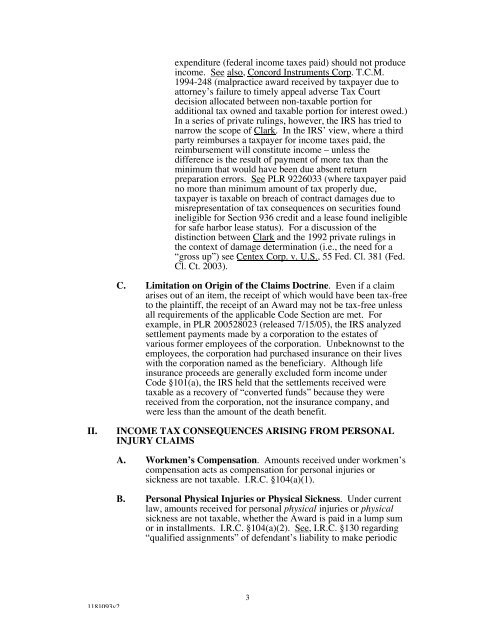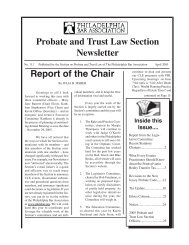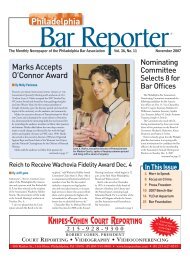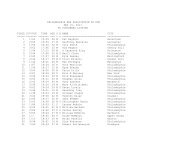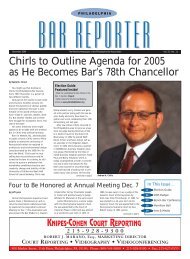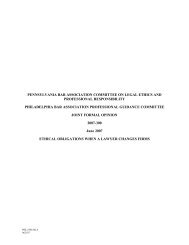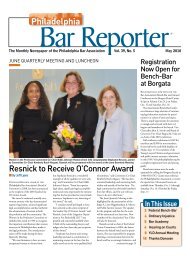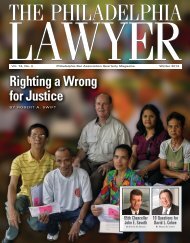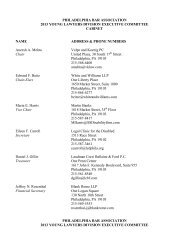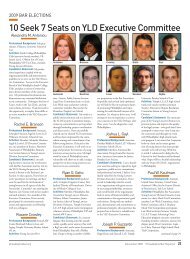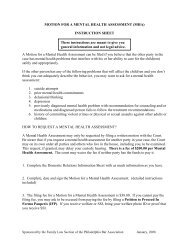Tax Aspects of Litigation Awards and Settlements - Philadelphia Bar ...
Tax Aspects of Litigation Awards and Settlements - Philadelphia Bar ...
Tax Aspects of Litigation Awards and Settlements - Philadelphia Bar ...
You also want an ePaper? Increase the reach of your titles
YUMPU automatically turns print PDFs into web optimized ePapers that Google loves.
expenditure (federal income taxes paid) should not produce<br />
income. See also, Concord Instruments Corp. T.C.M.<br />
1994-248 (malpractice award received by taxpayer due to<br />
attorney’s failure to timely appeal adverse <strong>Tax</strong> Court<br />
decision allocated between non-taxable portion for<br />
additional tax owned <strong>and</strong> taxable portion for interest owed.)<br />
In a series <strong>of</strong> private rulings, however, the IRS has tried to<br />
narrow the scope <strong>of</strong> Clark. In the IRS’ view, where a third<br />
party reimburses a taxpayer for income taxes paid, the<br />
reimbursement will constitute income – unless the<br />
difference is the result <strong>of</strong> payment <strong>of</strong> more tax than the<br />
minimum that would have been due absent return<br />
preparation errors. See PLR 9226033 (where taxpayer paid<br />
no more than minimum amount <strong>of</strong> tax properly due,<br />
taxpayer is taxable on breach <strong>of</strong> contract damages due to<br />
misrepresentation <strong>of</strong> tax consequences on securities found<br />
ineligible for Section 936 credit <strong>and</strong> a lease found ineligible<br />
for safe harbor lease status). For a discussion <strong>of</strong> the<br />
distinction between Clark <strong>and</strong> the 1992 private rulings in<br />
the context <strong>of</strong> damage determination (i.e., the need for a<br />
“gross up”) see Centex Corp. v. U.S., 55 Fed. Cl. 381 (Fed.<br />
Cl. Ct. 2003).<br />
C. Limitation on Origin <strong>of</strong> the Claims Doctrine. Even if a claim<br />
arises out <strong>of</strong> an item, the receipt <strong>of</strong> which would have been tax-free<br />
to the plaintiff, the receipt <strong>of</strong> an Award may not be tax-free unless<br />
all requirements <strong>of</strong> the applicable Code Section are met. For<br />
example, in PLR 200528023 (released 7/15/05), the IRS analyzed<br />
settlement payments made by a corporation to the estates <strong>of</strong><br />
various former employees <strong>of</strong> the corporation. Unbeknownst to the<br />
employees, the corporation had purchased insurance on their lives<br />
with the corporation named as the beneficiary. Although life<br />
insurance proceeds are generally excluded form income under<br />
Code §101(a), the IRS held that the settlements received were<br />
taxable as a recovery <strong>of</strong> “converted funds” because they were<br />
received from the corporation, not the insurance company, <strong>and</strong><br />
were less than the amount <strong>of</strong> the death benefit.<br />
II.<br />
INCOME TAX CONSEQUENCES ARISING FROM PERSONAL<br />
INJURY CLAIMS<br />
A. Workmen’s Compensation. Amounts received under workmen’s<br />
compensation acts as compensation for personal injuries or<br />
sickness are not taxable. I.R.C. §104(a)(1).<br />
B. Personal Physical Injuries or Physical Sickness. Under current<br />
law, amounts received for personal physical injuries or physical<br />
sickness are not taxable, whether the Award is paid in a lump sum<br />
or in installments. I.R.C. §104(a)(2). See, I.R.C. §130 regarding<br />
“qualified assignments” <strong>of</strong> defendant’s liability to make periodic<br />
1181093v2<br />
3


